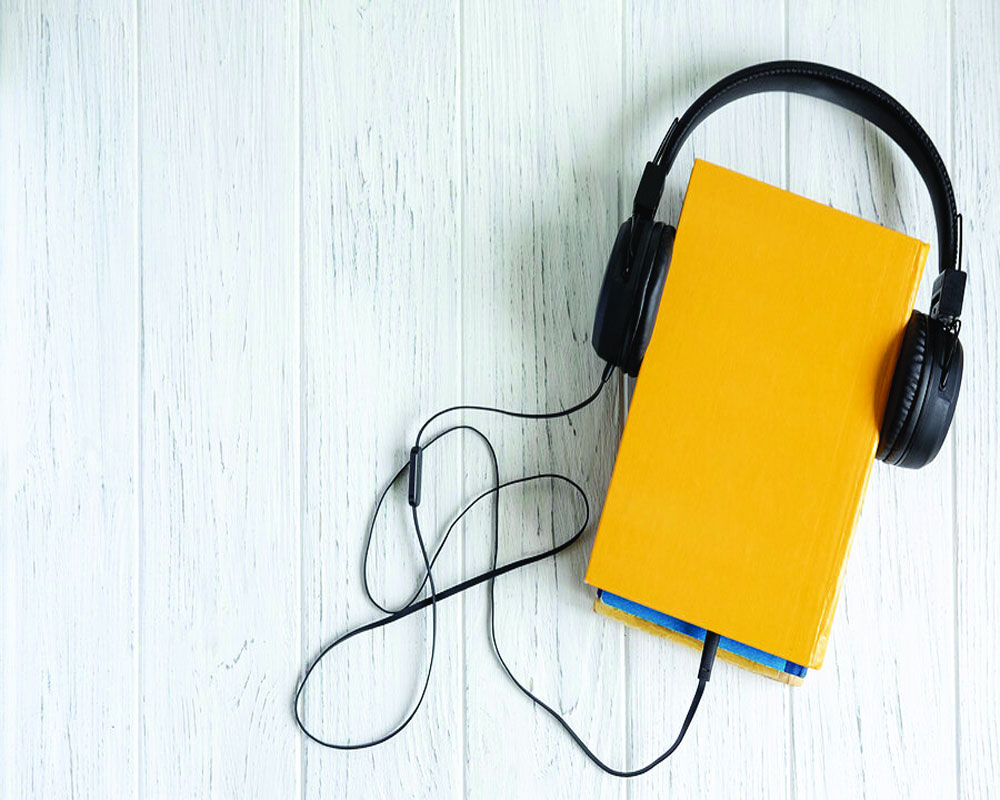During the pandemic, screen time has skyrocketed. As a positive measure, people are turning to less captive formats of learning to save their time and health, says Dushyantt Kohli
Listening empowers you to see with your eyes closed. Yes, visualisation is what I am talking about. Since the beginning of humankind, whenever a person wanted to focus on something or listen carefully to remember or absorb knowledge, the first step was to close the eyes primarily to cut off the mind from the outer world (visuals) and remove every distraction. In earlier times, whether people used to travel to different parts of the country/world without any map service or understand a process, they used to close their eyes and listen carefully to create a mental image to remember the directions and memorise.
We have enough instances from our mythology or history about the importance of sound, especially in learning. Today, even though the ecosystem is dynamic and the invention of newer technologies like VR, 4D, AR, etc, are providing multiple means to consume content and learn, the importance of audio as the fundamental means of transferring knowledge cannot be discounted. Moreover, with so many formats of content, there is an increased chance of facing distraction and ergonomic difficulties in learning through video/VR-based education. Even though these formats offer great entertainment and leisurely experiences, it does not suitably address the above concerns, especially considering the post-COVID scenario. During the pandemic, screen times have skyrocketed, and as a positive measure, people are turning to less captive formats to save their time and health.
Audio-based learning answers all these concerns so well that some of the subjects/topics are now made available in audio formats. These topics can be best learned on audio, hence, the term ‘Audio First’ was coined to describe it. For instance, if an individual has to study history by reading a book, the process itself is so long and monotonous that the student loses interest to consume the relevant pointers. If you try to learn the same subject through video, content production becomes unaffordable and time-consuming. However, the same can be taught in audio most effectively without worrying about the high cost of content production or long hours of monotonous reading.
Another robust case can be made for learning languages, which understandably has considerable market potential. Whenever someone wants to learn a new language, the most crucial element in the process is to listen to the content in the language carefully. It will help people attain a knack for the language, develop better pronunciation and fluency, and eventually make learning much less complicated.
Let us also look beyond students or learners for developing life skills. There is another vast use case of learning through audio in corporate L&D for multiple industries like hospitality, travel, food delivery, e-commerce, taxi service, etc. All the mentioned industries are operations-intensive and have professional requirements to train their people on SOPs (Standard Operating Procedures) many times over. With minimal infrastructure or device requirements, audio becomes the smartest choice for corporates to train their employees on SOPs without taking additional time from their work schedule or their lives. Audio helps to convert any activity time into learning time, unlike other mediums/formats, which require dedicated schedules to consume the content.
In the next three years, AI-based voice assistants will take learning to the next level. Further to this, voice assistants will seamlessly deliver quizzes, facts and interaction-based knowledge in such streamlined ways that people will start preferring them over traditional teaching methodologies. This can be attributed to the convenience and personalisation that these voice assistants are capable of providing.
With the extent of transformation brought to us every day by AI, machine-learning, data-analytics, and other technologies, it won’t be surprising to see big leaps in human productivity. A lot of the developments will be linked to the consumption of content through audio as people are preferring to multitask and cater more time to learning. Rather than wasting precious time in transiting for work, moving physical things like books, tablets, and computers around, they would prefer to operate devices through voice-commands for a hassle and stress-free lifestyle. We are already witnessing disruption through fresh ideas like voice recognition, wherein, an AI and machine learning-based tech delivers customised content after recognising the owners’ voice. The possibilities for the future are immense, and peoples’ love for audio will be at the center of new learning experiences. The next generation of technology in audio will be embraced with open arms, just like radio, MP3 devices, and audio apps have been in recent years.
(The writer is the COO of Khabri.)


























